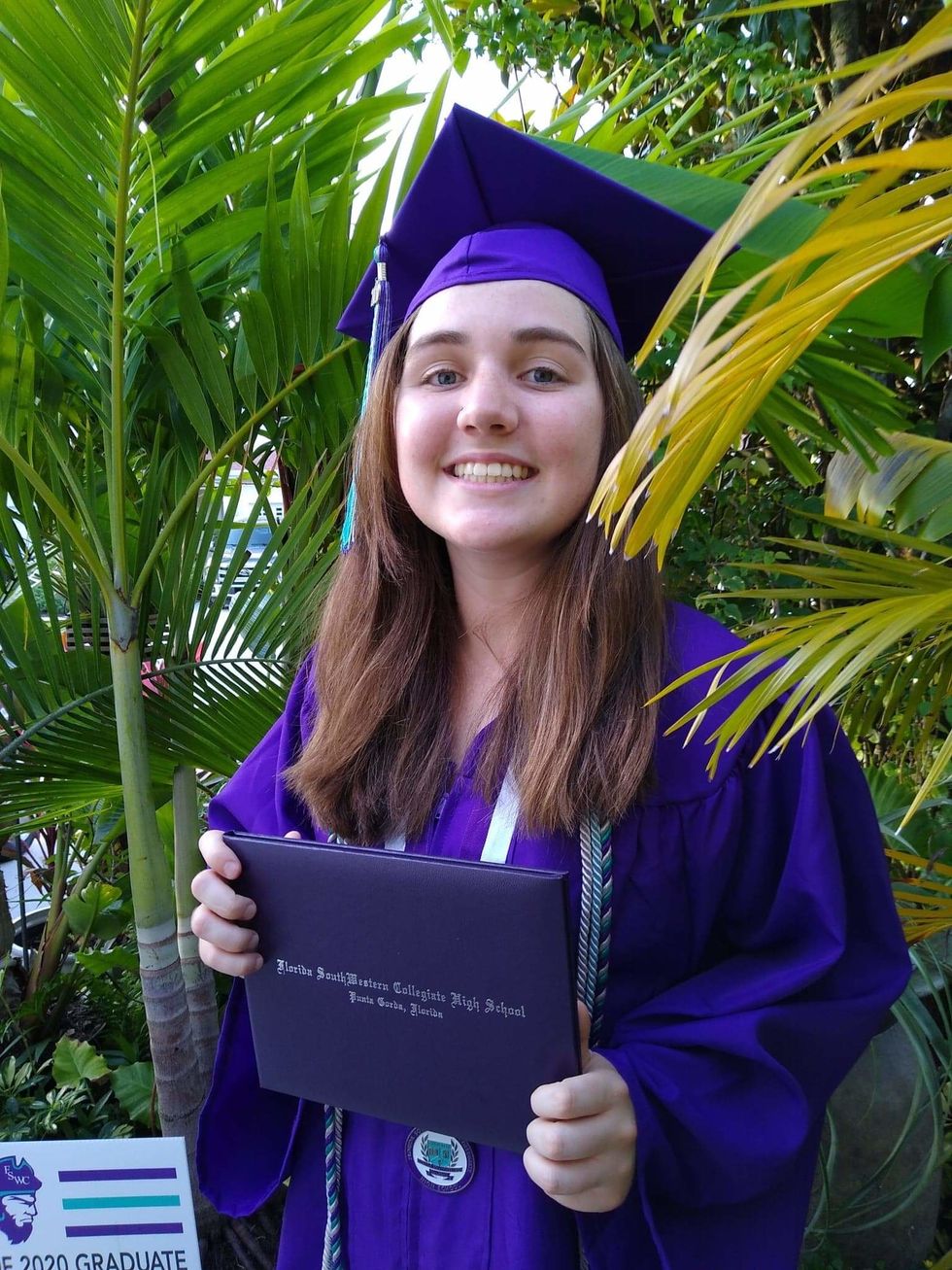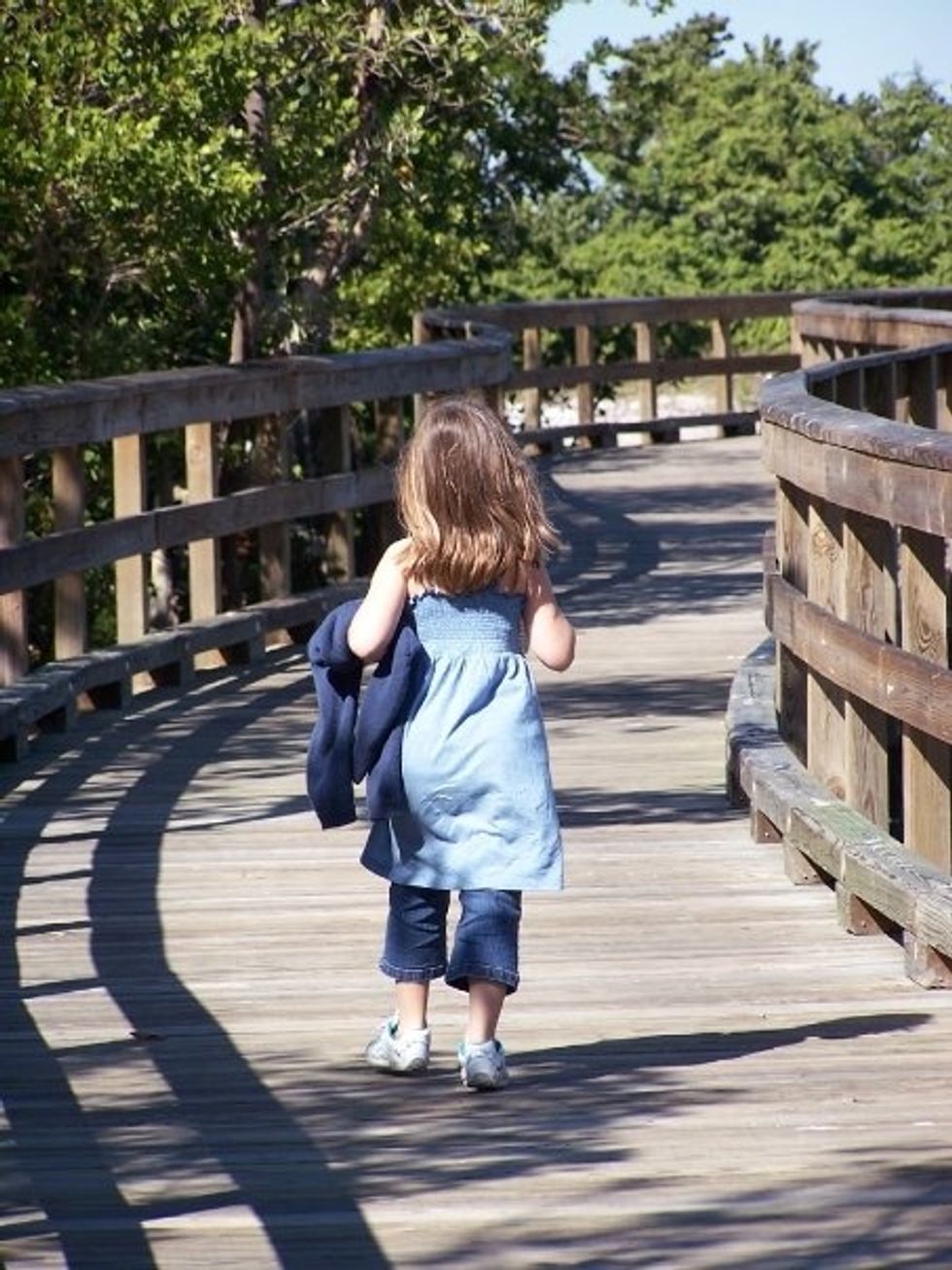Everyone has heard of homeschooling by now. When you hear that word, you probably conjure up images of children waking up late and doing worksheets at the kitchen table while their parents correct them on multiplication tables and grammar. Most people have probably had a homeschooled friend or two during their lifetime, as well, and you probably either felt really bad for your homeschooled friend or really jealous of them.
I didn't go to school until my junior year of high school, but I wasn't homeschooled; I was unschooled.
Unschooling is a type of homeschooling that doesn't involve using curricula or worksheets. Instead, it's based on child-led learning. The goal is to encourage a love of life-long learning and to educate the child holistically so that they learn what they want to know and what they need to know to enjoy life. People who unschool their children recognize that people learn at different rates and that classrooms tend to isolate children from real-world experiences. Here are nine misconceptions about unschooling that I've heard my entire life:
1. Children who are unschooled don't socialize with others.
 Photo by Power Lai on Unsplash
Photo by Power Lai on UnsplashWhen I was younger, I was constantly meeting new people and hanging out with my friends. I went to weekly meetups at different playgrounds to play with other homeschooled kids, I played with my neighbors almost every day, and I asked kids at the beach if I could play with them. It doesn't take a classroom to learn how to talk to people or to model social behaviors off of the adults in your life. Socializing was as easy as walking up to another little girl and asking how old she was and if she wanted to play hide and seek.
2. Children who are unschooled can't learn basic knowledge like reading, writing, and math.
 Photo by JESHOOTS.COM on Unsplash
Photo by JESHOOTS.COM on UnsplashMy parents read to me on a nightly basis when I was younger, and from ages 6-11, I was constantly filling up reusable grocery bags with library books about all sorts of different subjects and reading through all of them in the span of three weeks. I've loved writing since I was tiny, and I'm pretty sure that somewhere out there, there are probably dozens of files with stories that I wrote about princesses, soldiers, families, and ghosts - my imagination was endless and so, it seemed, was the hard drive on my mom's laptop.
I will admit that I didn't love math when I was younger. I got frustrated with it easily, and I didn't really dedicate any time to learning it until I was about twelve years old. But once I learned it, I learned it well.
When I started dual enrolling at fourteen, one of my first classes was Statistics, and I easily pulled off an A.
Learning new things isn't that different from learning how to speak or walk - if you see a behavior demonstrated to you, whether it's by a parent, a teacher, or a friend, you can copy that behavior and learn that skill.
3. Unschooled kids don't know how to live in the real world.
 Photo by Saketh Garuda on Unsplash
Photo by Saketh Garuda on UnsplashUnschooled kids live in the real world 24/7. While my friends were stuck in classrooms, I was on field trips to nature preserves, science museums, art museums, acting classes, pottery classes, and the library. Without the restrictions of a regular school schedule, I went on several month-long, cross-country roadtrips with my retired grandparents and saw caverns, lighthouses, and centuries-old mansions.
I went to the grocery store with my parents and helped to pick out food. I kept track of different prices and sales and entertained myself by adding everything up while my mom shopped, then I checked to see if I got it right once we checked out. I learned new recipes and did science experiments. I learned from people much older than me and hung out with kids much younger than me. All of this allowed me to discover who I am, what I love, and what I want to do in this world.
I gained real-world experience from living in the real world. I wouldn't trade that for anything.
4. Unschooled kids don't know what they're missing out on in school because their parents make them do this.
 Photo by Dilan Bandara on Unsplash
Photo by Dilan Bandara on UnsplashFun fact: I went to school for exactly one month in the fourth grade. There was a lull in homeschool meetups, and there were a lot of much younger children in our group when we did go to meetings. My mom was finishing up nursing school and life was generally really hectic and pretty boring at the same time, so my parents asked me if I wanted to go to school and see if I liked it more than unschooling. I was excited to try, but I was not impressed when I got there.
The hours of worksheets, the brief fifteen minute recesses, the vaguely condescending teachers who thought that group silent time was an appropriate consequence for a couple of kids being too loud during lunch just wasn't the move.On top of that, I've heard complaints about school from my friends for years. Us unschooled kids know what school is like, that's why we decide, year after year, to avoid it.
The whole point of unschooling is that it teaches kids how to be independent and how to make their own choices - even the choice on whether or not to keep unschooling.
5. Unschooled kids don't get the high school experience.
 Photo by Amy Kate on Unsplash
Photo by Amy Kate on UnsplashYou'd be shocked at how effectively parents and organizations can pull together to create resources for their children. In my area, there are usually 2-3 proms for homeschoolers every year. A lot of kids go to co-ops, programs run by parents and educators that teach really interesting classes like coding, entrepreneurship, foreign languages, and survival skills.
Being unschooled gives teenagers the chance to live the best parts of the high school experience while avoiding some of the worst ones.We avoid bullying, awful teachers, and stress, but we have the free time to explore our interests, hang out with friends, and gain independence.
6. Unschooled kids can't get into college.

Emily White
I'm obviously here, writing this article for a page run by college students. So, how do unschooled kids get into college?
We've already established that unschooled kids are smart and that we learn all of the information and skills that we need to know from real-life experiences, as well as from wanting to learn how to do something and seeking out the resources to do that thing. High school transcripts are created within high schools, and since our home is technically our school, our guardians are technically our administrators and can make our transcripts.
Since transcripts detail what students have learned, all our guardians really need to do is format everything we've learned into a document that colleges will understand. You read fifty books last year and talked about them with your friends and parents? Sounds like an English credit. You learned Spanish from a combo of Duolingo and talking to your international friends online? That's a foreign language credit right there.
We learn, so we get credit for learning.
In my case, I started dual enrolling in 9th grade after passing the PERT with high scores in all three categories. I took two classes per semester until junior year, when I found out about a collegiate high school near me that would let me take college classes full time until I graduated. After unschooling nearly my entire childhood, I earned my AA degree and my high school diploma, then transferred to Florida Gulf Coast University. All in all, it's actually very easy for most unschoolers to get into and graduate from college.
7. Unschooling can't be legal.
 Photo by Álvaro Serrano on Unsplash
Photo by Álvaro Serrano on UnsplashHomeschooling laws are stricter in some states than others, but unschooling is perfectly legal. I'm most familiar with Florida homeschool laws, so I can only speak from those. In Florida, if your parent has registered you as a homeschooler within the county, they have to provide yearly documentation that you're learning something. Some folks have teachers/educators visit their homes to "assess" their child each year, but submitting standardized test scores also works. Another option is for parents to register their children as private school students, then enroll them in an "umbrella school," which is technically a private school that exists for the purpose of telling the government that the child is enrolled in a school but doesn't have classes or any sort of meetings. Either option is completely legal.
Being unschooled allowed me to learn, grow, and think independently. It's an option that many people aren't aware of, but it provides an environment that I think many students would thrive in, given the chance. I credit my parents with giving me the tools that I need to succeed in life, for letting me explore who I am, and for giving me the opportunity and means to thrive.
- Stereotypes of Homeschooling ›
- 11 Homeschool Myths Busted ›
- 21 Questions Homeschoolers Hate Being Asked ›
- Seven Reasons Why I Switched To Homeschool ›
- 8 Homeschool Stereotypes ›






















